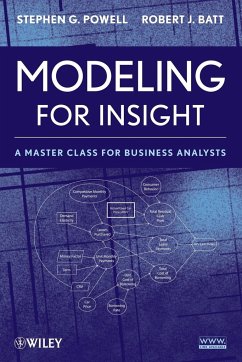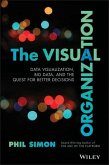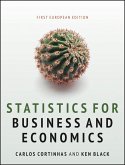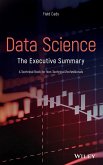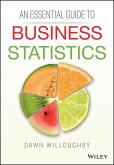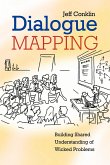Praise for Modeling for Insight
"Most books on modeling are either too theoretical or too focused on the mechanics of programming. Powell and Batt's emphasis on using simple spreadsheet models to gain business insight (which is, after all, the name of the game) is what makes this book stand head and shoulders above the rest. This clear and practical book deserves a place on the shelf of every business analyst."
--Jonathan Koomey, PhD, Lawrence Berkeley National Laboratory and Stanford University, author of Turning Numbers into Knowledge: Mastering the Art of Problem Solving
Most business analysts are familiar with using spreadsheets to organize data and build routine models. However, analysts often struggle when faced with examining new and ill-structured problems. Modeling for Insight is a one-of-a-kind guide to building effective spreadsheet models and using them to generate insights. With its hands-on approach, this book provides readers with an effective modeling process and specific modeling tools to become a master modeler.
The authors provide a structured approach to problem-solving using four main steps: frame the problem, diagram the problem, build a model, and generate insights. Extensive examples, graduated in difficulty, help readers to internalize this modeling process, while also demonstrating the application of important modeling tools, including:
_ Influence diagrams
_ Spreadsheet engineering
_ Parameterization
_ Sensitivity analysis
_ Strategy analysis
_ Iterative modeling
The real-world examples found in the book are drawn from a wide range of fields such as financial planning, insurance, pharmaceuticals, advertising, and manufacturing. Each chapter concludes with a discussion on how to use the insights drawn from these models to create an effective business presentation. Microsoft Office Excel and PowerPoint are used throughout the book, along with the add-ins Premium Solver, Crystal Ball, and Sensitivity Toolkit. Detailed appendices guide readers through the use of these software packages, and the spreadsheet models discussed in the book are available to download via the book's related Web site. Modeling for Insight is an ideal book for courses in engineering, operations research, and management science at the upper-undergraduate and graduate levels. It is also a valuable resource for consultants and business analysts who often use spreadsheets to better understand complex problems.
Hinweis: Dieser Artikel kann nur an eine deutsche Lieferadresse ausgeliefert werden.
"Most books on modeling are either too theoretical or too focused on the mechanics of programming. Powell and Batt's emphasis on using simple spreadsheet models to gain business insight (which is, after all, the name of the game) is what makes this book stand head and shoulders above the rest. This clear and practical book deserves a place on the shelf of every business analyst."
--Jonathan Koomey, PhD, Lawrence Berkeley National Laboratory and Stanford University, author of Turning Numbers into Knowledge: Mastering the Art of Problem Solving
Most business analysts are familiar with using spreadsheets to organize data and build routine models. However, analysts often struggle when faced with examining new and ill-structured problems. Modeling for Insight is a one-of-a-kind guide to building effective spreadsheet models and using them to generate insights. With its hands-on approach, this book provides readers with an effective modeling process and specific modeling tools to become a master modeler.
The authors provide a structured approach to problem-solving using four main steps: frame the problem, diagram the problem, build a model, and generate insights. Extensive examples, graduated in difficulty, help readers to internalize this modeling process, while also demonstrating the application of important modeling tools, including:
_ Influence diagrams
_ Spreadsheet engineering
_ Parameterization
_ Sensitivity analysis
_ Strategy analysis
_ Iterative modeling
The real-world examples found in the book are drawn from a wide range of fields such as financial planning, insurance, pharmaceuticals, advertising, and manufacturing. Each chapter concludes with a discussion on how to use the insights drawn from these models to create an effective business presentation. Microsoft Office Excel and PowerPoint are used throughout the book, along with the add-ins Premium Solver, Crystal Ball, and Sensitivity Toolkit. Detailed appendices guide readers through the use of these software packages, and the spreadsheet models discussed in the book are available to download via the book's related Web site. Modeling for Insight is an ideal book for courses in engineering, operations research, and management science at the upper-undergraduate and graduate levels. It is also a valuable resource for consultants and business analysts who often use spreadsheets to better understand complex problems.
Hinweis: Dieser Artikel kann nur an eine deutsche Lieferadresse ausgeliefert werden.
"Most books on modeling are either too theoretical or too focused on the mechanics of programming. Powell and Batt s emphasis on using simple spreadsheet models to gain business insight (which is, after all, the name of the game) is what makes this book stand head and shoulders above the rest. This clear and practical book deserves a place on the shelf of every business analyst." ( Jonathan Koomey, PhD , Lawrence Berkeley National Laboratory and Stanford University , author Turning Numbers into Knowledge: Mastering the Art of Problem Solving)

